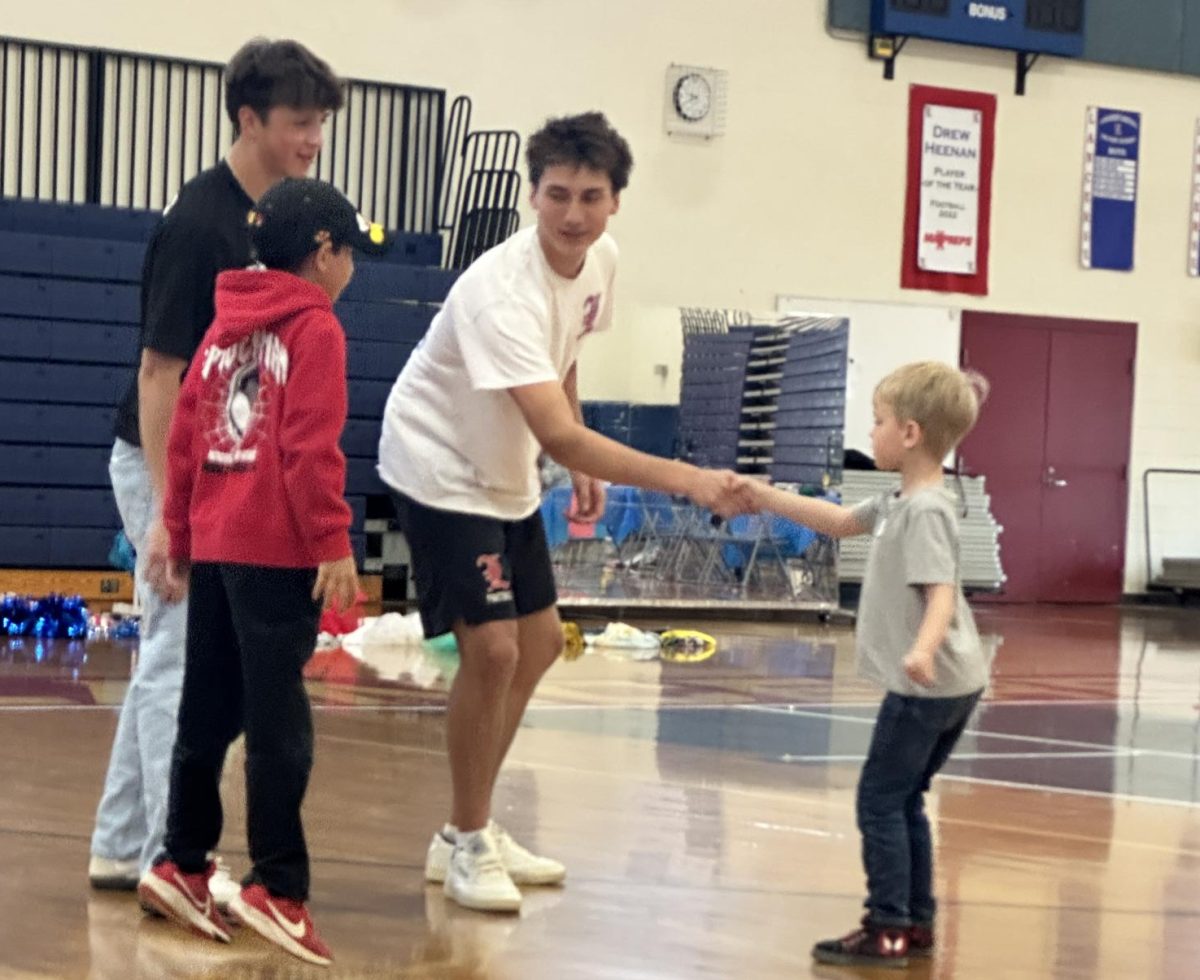For a student who speaks a foreign language, saying ‘hello’ can be a challenge. The fear of mispronouncing words, being misunderstood, or not knowing how to respond can make basic interactions feel overwhelming.
English for Speakers of Other Languages (ESOL) teacher Carol Ritchie works with students from other countries to overcome such challenges. Ritchie came to LHS to teach the English language and help students feel comfortable in this new environment.
“People who come to the U.S. really need English,” Ritchie said. “They like [ESOL] classes because [the class] helps them do something they want.”
After graduating from college, Ritchie became fluent in German and other languages, which inspired her to teach English to foreign speakers.
“I love teaching,” Ritchie said. “I substitute taught, and I really liked it. I want to be with people who want to learn, and I liked that [idea], so that made me want to teach ESOL.”
Ritchie’s first experience teaching ESOL came when she worked in New York. She would travel between school districts to teach, which gave her a deeper understanding of the unique needs of language learners.
“I was driving probably 100 miles a day,” Ritchie said. “I would only spend time with one student in one school district, and then there would be another student in another school district, so it was pretty crazy.”
With many years of experience, Ritchie knows that teaching in a classroom where students come from diverse backgrounds presents its challenges. She acknowledges that her students face more than just academic difficulties.
“ I know how it is to be in a different country and not speak the language,” Ritchie said. “The challenges students face include understanding what people are saying, understanding assignments, and adjusting to school culture and U.S. culture. It depends on how long [the student] has been here. If they’ve just arrived, it’s a lot of stuff to learn, not just the language. It’s culture shock, and that’s tough on people.”
While teaching English to her students, Ritchie finds herself constantly learning from them. Their diverse backgrounds and experiences help her have a better understanding of the world.
“I love my students, and I love learning,” Ritchie said. “I learn so much from my students all the time because they come from someplace else. They teach me as well.”
Because of these challenges, Ritchie uses hands-on activities to help students build their skills beyond hand-written assignments.
“I try to make the class fun and find things that interest them,” Ritchie said. “A lot of [the activities] are pictures and sometimes music, sometimes walking around, seeing what’s going on and even having videos about what’s going on in the world or what’s going on here.”
If students have a more advanced knowledge of basic English, Ritchie supports them by collaborating with their teachers. She works as a co-teacher in some classrooms and guides students who might struggle in their classes.
“Sometimes I push into a class,” Ritchie said. “So, if I have some kids in a 10th-grade social studies class, I would be talking to the teachers and giving them some suggestions on how to help the kids.”
Ritchie also aims to help her students navigate the cultural differences they face as newcomers to the United States.
“Talking about what U.S. culture is and expectations is as important as language skills for my students,” Ritchie said. “Also, we just talk about how to work with other people and connect to other people.”
For Ritchie, the key to effective teaching is recognizing that every student is different and adapting her teaching methods based on each student’s individual needs.
“Teachers’ styles always need to grow and change over time,” Ritchie said. “Hopefully, I will learn a little bit more about how to deal with the different issues that come up from another language.”
Despite the challenges, Ritchie remains focused on helping her students grow. Ritchie finds that the most rewarding part of her job is “seeing a kid be successful”.
“I have a student in another school who did not pass any class at the beginning of the year, or even last year,” Ritchie said. “Then, by the end of the first marking period, they were passing everything. And that’s like ‘Oh, okay, I have to take some responsibility, I can do this, and I can pass.’”



![Carol Ritchie helps one of her students through a computer assignment during A period. Ritchie has taught students basic English with activities to help them get a better grasp of concepts. problem-solving skills in her classroom. “I try to make the class fun and find [activities] that interest them,” Ritchie said.A banner of the world map and flags hangs near ESOL teacher Ms. Ritchie’s desk. (Image made in Canva by Kelsey Sweet).](https://www.lancerspiritonline.com/wp-content/uploads/2025/06/Light-Green-Featured-Jewelry-Instagram-Post.jpg)












